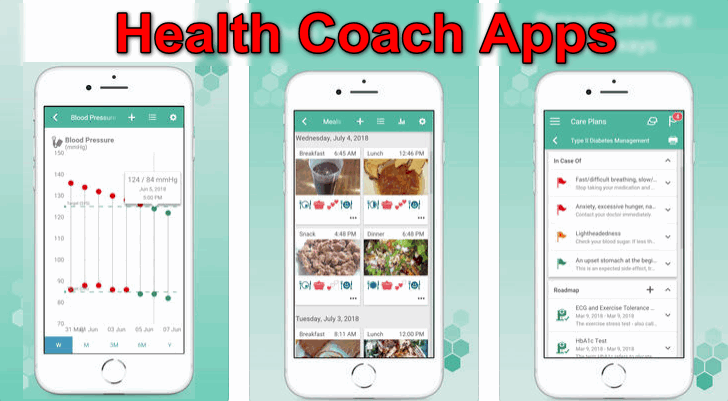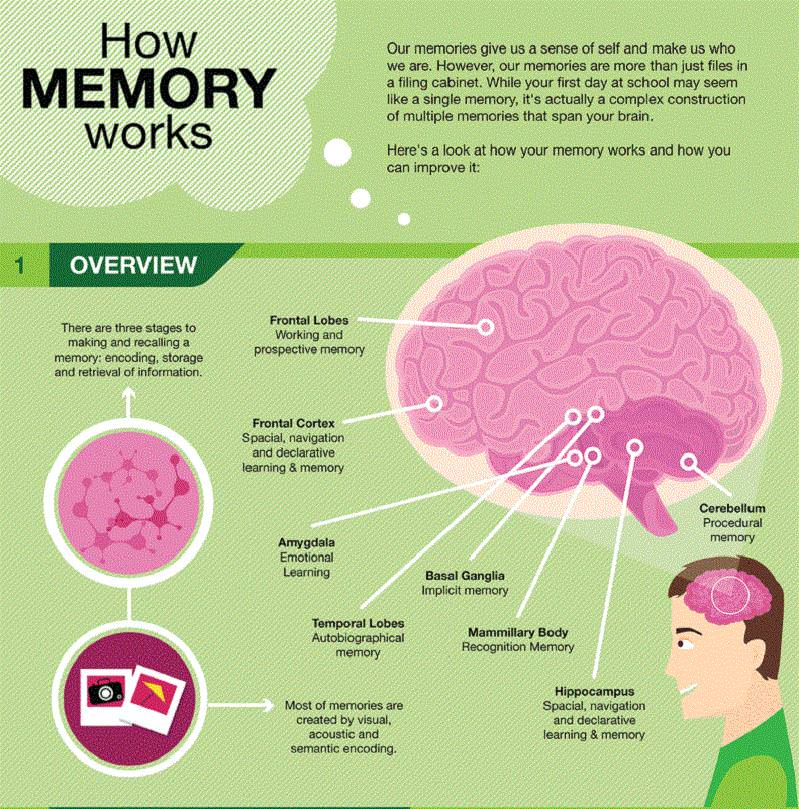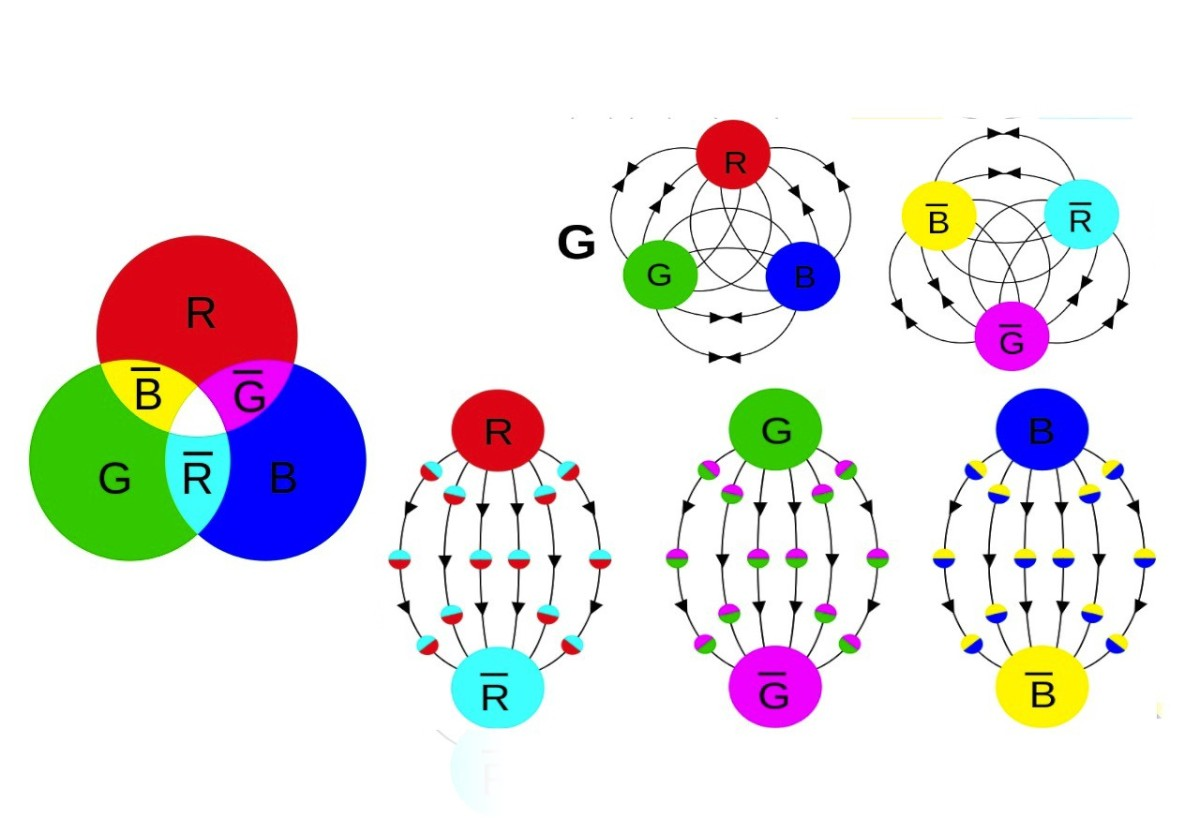Healthcare coaching apps are revolutionizing the way individuals engage with their wellness journey, providing personalized healthcare solutions right at their fingertips. These innovative mobile health applications leverage advanced algorithms, including reinforcement learning healthcare techniques, to tailor support uniquely for each user’s needs. This is particularly beneficial for cancer patients and others who require diligent adherence to complex treatment regimens. By integrating artificial intelligence healthcare solutions, these apps offer real-time feedback and adjustments, ensuring patients stay on track with their healthcare goals. As technology continues to advance, the potential for healthcare coaching apps to enhance patient management and education becomes increasingly significant.
Digital health companions, often referred to as healthcare coaching apps, are emerging as pivotal tools in personal wellness and disease management. These mobile applications are designed to offer tailored guidance and resources, making them invaluable for individuals managing chronic conditions, including cancer treatment apps specifically aimed at improving patient adherence. Utilizing cutting-edge AI technology, these platforms adapt in real time, offering support that is both relevant and timely. Moreover, the integration of personalized healthcare strategies suggests a shift towards more interactive and user-centered approaches in health management. As we explore the landscape of mobile health solutions, it’s clear that these apps provide much-needed assistance, motivating users on their journey to improved health.
Revolutionizing Personalized Healthcare with Mobile Apps
The integration of mobile health applications into personalized healthcare has transformed the way patients manage their health, particularly for those facing chronic conditions such as cancer. These apps utilize sophisticated algorithms, including reinforcement learning methods, to tailor interventions specifically to an individual’s needs. For instance, patients undergoing stem cell transplants benefit from personalized reminders about medication schedules, which are adjusted based on real-time feedback. This level of customization not only enhances adherence rates but also significantly improves the overall health outcomes for patients.
Furthermore, the ability to adapt interventions in real-time through mobile health applications fosters a deeper connection between patients and their caregivers. Collaborative features allow caregivers to receive updates and motivational prompts, ensuring that they can support their loved ones effectively. This synergy between technology and human interaction exemplifies how personalized healthcare is evolving, making medical advice more accessible and responsive to the nuances of individual health challenges.
AI Healthcare Solutions: The Key to Adaptive Patient Engagement
Artificial intelligence is at the forefront of developing healthcare coaching apps that respond dynamically to patient behaviors and needs. By leveraging AI healthcare solutions, these applications can deliver just-in-time adaptive interventions that are crucial for maintaining patient engagement, particularly in scenarios involving medication management and chronic disease recovery. For example, the ADAPTS HCT app designed for stem cell transplant patients employs an algorithm that learns from each interaction, optimizing when and how it delivers reminders or motivational messages.
These AI-driven solutions not only facilitate enhanced patient compliance but also ensure that support mechanisms are in place precisely when needed. By employing technology that adjusts to the patient’s context and preferences, the healthcare system can offer targeted assistance that may significantly impact recovery trajectories. This approach signifies a shift from traditional reactive care to a more proactive engagement strategy, paving the way for improved health management across various patient demographics.
Enhancing Cancer Treatment with Advanced App Technologies
Cancer treatment apps exemplify how technology can bridge the gap between complex medical regimes and patient self-management. Equipped with features that track medication adherence and emotional well-being, these apps provide a holistic approach to treatment. For example, through machine learning and real-time data analysis, these applications can suggest coping strategies or wellness practices specifically tailored to individual circumstances, thus helping patients navigate the challenges associated with their treatment.
In clinical settings, continuous feedback from healthcare professionals enhances these cancer treatment apps’ capabilities, allowing them to evolve based on practical user experiences. Such integration ensures that the algorithms constantly refine their recommendations, which is critical given the evolving nature of cancer treatments. By using data-driven insights to personalize care, these applications empower patients to take charge of their recovery journey, leading to more informed decisions and ultimately better health outcomes.
Harnessing Reinforcement Learning for Healthcare Improvements
Reinforcement learning is revolutionizing the realm of personalized healthcare apps by introducing intelligent systems that learn from user interactions over time. Unlike traditional health apps with generic guidelines, those employing reinforcement learning adapt their recommendations based on user behavior and feedback. This dynamic approach is particularly beneficial for managing complex treatment plans where adherence is crucial, such as for cancer patients undergoing intensive therapies.
Apps utilizing reinforcement learning algorithms can predict when a patient is most receptive to interventions, thereby enhancing the likelihood of compliance with medication and other health-related behaviors. For example, if a patient consistently overlooks morning reminders, the app can adjust to provide notifications during times that have previously shown higher engagement. This capability represents a significant advancement in the fitness of healthcare applications to respond to individual nuances, promoting sustained adherence and improved health outcomes.
The Role of Social Networks in Health Management Apps
Integrating social networks into healthcare coaching apps provides an innovative layer of support for patients. By facilitating communication between patients and caregivers, apps can help foster collaborative care strategies, which are vital for chronic disease management. For instance, the inclusion of social features allows for real-time sharing of health milestones and challenges, encouraging both patients and their medical support teams to participate actively in the healing process.
Moreover, social interaction through these applications can drive motivation and accountability, essential factors in overcoming the hurdles of treatment adherence. Patients often experience a sense of isolation during their health journeys; leveraging social networks can mitigate these feelings through shared experiences and mutual encouragement. This holistic approach not only uplifts individual spirits but also creates a community of support that is crucial for mental and emotional well-being.
Future Innovations in Mobile Health Applications
As technology progresses, we can anticipate exciting future innovations within the realm of mobile health applications. The continued development of sophisticated artificial intelligence and machine learning techniques will further refine the capacity for personalization in healthcare coaching apps. These advancements will allow for even more nuanced support structures, enabling apps to not just track progress but also predict patient needs before they arise, effectively anticipating complications.
In addition to medication management, the potential applications of this technology are broadening to encompass mental health, lifestyle intervention, and chronic disease management. As researchers continue to explore the possibilities of mobile health applications, the focus will remain on integrating user feedback and clinical input to develop tools that truly resonate with user experiences. This paves the way for a future where healthcare feels less cumbersome and more like a partnership between patients and digital health solutions.
Addressing Compliance Challenges through Technology
Adherence to treatment regimens remains one of the greatest challenges in healthcare management, especially for patients undergoing complex therapies like those for cancer. Emphasizing the need for innovative solutions, mobile health applications equipped with intelligent algorithms offer a pathway to enhance compliance. By utilizing real-time data to understand patient behaviors, these apps can develop targeted strategies that directly address the barriers to adherence, such as forgetfulness or emotional distress.
Furthermore, through insightful analytics, healthcare providers can gain a deeper understanding of compliance patterns among patients, allowing for better tailoring of interventions. This data-driven approach not only benefits individuals by supporting their specific needs but also aids healthcare teams in refining treatment protocols. The synergy between technology and healthcare not only boosts adherence but promotes an overall improvement in patient outcomes across various therapeutic settings.
Transforming Recovery Experiences with Intelligent Apps
The recovery journey for patients, particularly those dealing with serious illnesses like cancer, can be daunting and overwhelming. Intelligent healthcare coaching apps are emerging as valuable tools that transform these recovery experiences by offering personalized support tailored uniquely to each patient’s journey. These apps harness data-driven insights to adjust interventions based on user feedback, ensuring timely and relevant assistance.
As patients progress through their treatment, the dynamic nature of these applications can help them manage expectations and stay engaged with their health protocols. Instead of a static approach, these apps provide a flexible framework that encourages self-monitoring and reflection, which is fundamental in navigating the complexities of healthcare. By fostering a sense of agency, intelligent apps not only enhance adherence but also contribute to the overall mental and emotional well-being of patients throughout their recovery.
The Impact of Technology on Caregivers of Cancer Patients
Caregivers play a crucial role in supporting patients through their treatment journeys, often balancing the emotional and logistical aspects of care. Recognizing the mental and physical demands placed on caregivers, innovative healthcare coaching apps are being developed to assist them in their roles. By providing timely reminders, resourceful tips, and an interactive platform for communication, these apps can alleviate some burdens faced by caregivers, ensuring they are better equipped to support their loved ones.
Moreover, these applications not only serve the patients but also create a support network for caregivers. Features that enable caregivers to share experiences, insights, and coping strategies can significantly lessen feelings of isolation and overwhelm. Through this collaborative approach, technology is redefining caregiving roles, making them more manageable while also enhancing the overall quality of care delivered to patients undergoing cancer treatment.
Frequently Asked Questions
What are healthcare coaching apps and how do they work?
Healthcare coaching apps are mobile health applications designed to provide personalized support and guidance for individuals managing their health conditions. Utilizing advanced algorithms, including AI healthcare solutions and reinforcement learning, these apps adapt interventions based on user behavior and needs, enabling real-time customization of care.
How can personalized healthcare apps help cancer patients?
Personalized healthcare apps, particularly those designed for cancer treatment, offer tailored support for patients undergoing therapies like stem cell transplants. These mobile health applications use reinforcement learning algorithms to optimize medication adherence, provide motivational prompts, and improve communication between patients and caregivers, leading to better health outcomes.
What role do AI healthcare solutions play in health coaching apps?
AI healthcare solutions are integral to the functionality of health coaching apps, allowing for the analysis of user data and minimizing one-size-fits-all approaches. By employing smart algorithms, these applications can deliver personalized recommendations and interventions, adapting to the evolving needs of users throughout their healthcare journey.
What benefits do reinforcement learning healthcare apps provide?
Reinforcement learning healthcare apps continuously evolve based on user interactions, resulting in more effective health management. By learning from past behaviors, these apps offer timely reminders and support, reduce irrelevant notifications, and ultimately enhance user engagement and adherence to health regimens.
Are there any apps specifically designed for cannabis users?
Yes, there are healthcare coaching apps developed specifically for cannabis users, such as MiWaves. These apps harness reinforcement learning technologies to support users in managing cannabis consumption, providing adaptive strategies based on individual usage patterns and needs.
How do mobile health applications improve medication adherence?
Mobile health applications enhance medication adherence by sending personalized reminders, offering real-time feedback, and utilizing behavioral nudges tailored to each patient. Through continuous learning, these apps optimize support according to individual schedules and preferences, thereby increasing the likelihood of consistent medication use.
Can healthcare coaching apps replace human coaches?
While healthcare coaching apps cannot entirely replace human coaches, they offer an accessible and cost-effective alternative for many individuals. These digital supports provide continuous guidance and motivation at the user’s convenience, making them a valuable resource for people seeking personal health improvement without the need for intensive human interaction.
What features should I look for in a healthcare coaching app?
When selecting a healthcare coaching app, look for personalized healthcare features such as real-time feedback, adaptive goal-setting, integration with wearable devices, and the use of reinforcement learning algorithms. These elements ensure that the app can adjust its support to meet your unique health needs effectively.
How do I know if a healthcare coaching app is effective?
The effectiveness of a healthcare coaching app can often be gauged through user reviews, clinical trial results, and whether it employs evidence-based algorithms like reinforcement learning. Additionally, apps that demonstrate real-time adaptability and personalized support tend to show better outcomes in user engagement and health management.
What advancements are expected in healthcare coaching apps in the near future?
Future advancements in healthcare coaching apps are likely to include enhanced AI functionalities for better personalization, increased integration with telehealth services, and more immersive user experiences. Innovations will also focus on community support features, expanding social network capabilities for users to share their journeys with peers.
| Key Point | Details |
|---|---|
| Target Group | Cancer patients, especially those undergoing stem cell transplants, and cannabis users. |
| Technology Used | Reinforcement learning algorithms to create personalized support applications. |
| Management of Side Effects | Apps provide personalized strategies to help manage medication regimens and related challenges. |
| Just-In-Time Intervention | Applications adapt to users’ needs in real-time, offering support when it’s most needed. |
| Collaborative Development | Created in partnership with clinicians and researchers for practical applications. |
| Trials and Testing | First clinical trial for ADAPTS HCT focusing on young adult patients post-transplant. |
| Broader Applications | Technology is also applied in programs targeting cannabis use and dental care adherence. |
Summary
Healthcare coaching apps represent a revolutionary approach to patient support, particularly for cancer patients and those facing chronic health issues. By utilizing advanced algorithms, these apps provide personalized guidance and motivation, helping users adhere to complex medication regimens and improve their overall health outcomes. With ongoing developments and trials underway, the future of healthcare coaching apps looks promising, offering customized solutions that adapt to individual patient needs in real-time.




